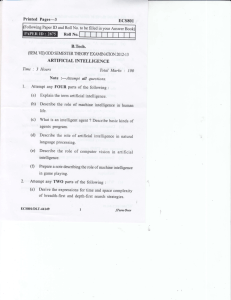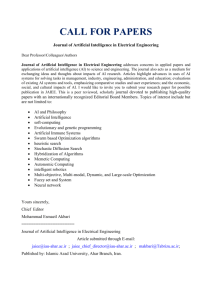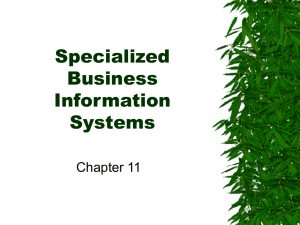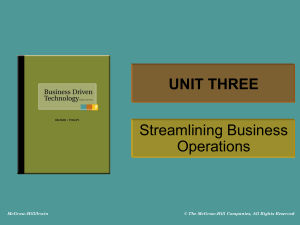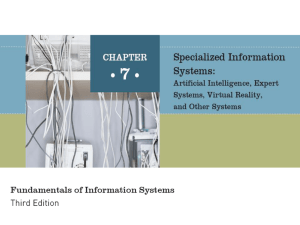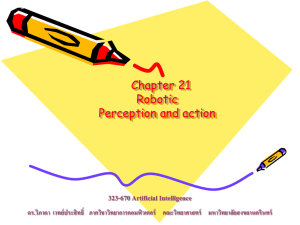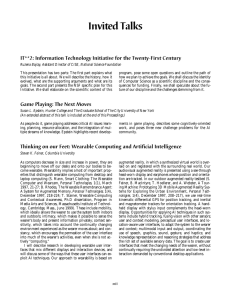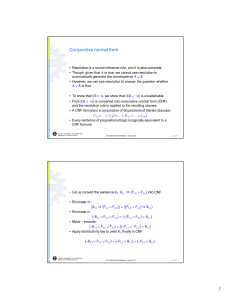AI, Expert Systems, VR: Presentation
advertisement
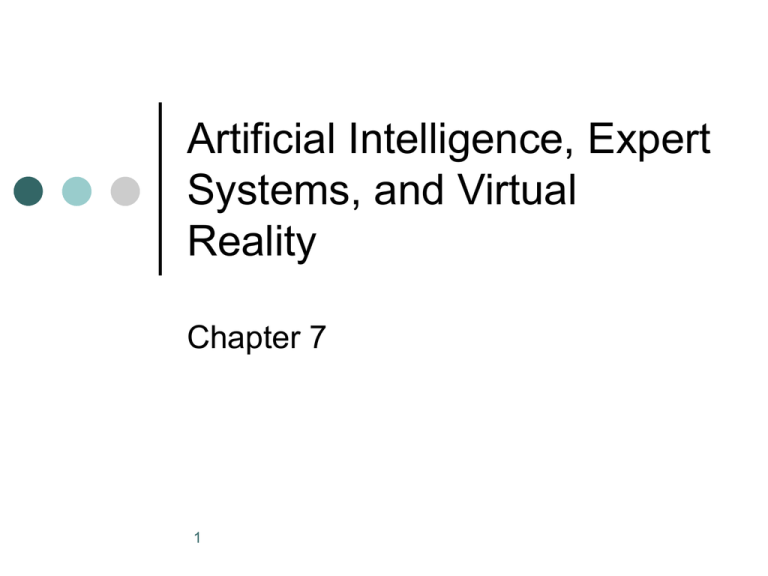
Artificial Intelligence, Expert Systems, and Virtual Reality Chapter 7 1 Artificial Intelligence People, procedures, hardware, software, data, and knowledge needed to develop computer systems and machines that demonstrate characteristics of intelligence Test for AI 2 Unable to tell whether you are interacting with a computer or human The Nature of Intelligence 3 Learn from experience & apply the knowledge Handle complex situations Solve problems when important information is missing Determine what is important React quickly and correctly to new situations Understand visual images Process and manipulate symbols Be creative and imaginative Use heuristics (rules of thumb) Natural and Artificial Intelligence 4 Conceptual Model of AI www.robocup.org Handwriting recognition: 5 http://members.aol.com/Trane64/java/JRec.html Expert System Characteristics Can explain their reasoning or suggested decisions Can display “intelligent” behavior Can draw conclusions from complex relationships Can provide portable knowledge Can deal with uncertainty 6 Expert System Limitations 7 Not widely used or tested Difficult to use Limited to relatively narrow problems Cannot readily deal with “mixed” knowledge Possibility of error Cannot refine own knowledge base Difficult to maintain May have high development costs Raise legal and ethical concerns Components of an Expert System Backward chaining Forward chaining Comparison of backward and forward chaining Assembling human experts The use of fuzzy logic The use of rules The use of cases 8 Rules Whale Watcher demo JESS and the Sticks game http://herzberg.ca.sandi a.gov/jess/ Other demos 9 http://www.aiinc.ca/dem os/whale.html http://www.cs.wisc.edu/ ~mariopi/AIDemos.html Knowledge Acquisition Facility 10 Expert System Development Process 11 Participants in Expert System Development Recognize the real problem Develop a general framework for problem solving Formulate theories about the situation Develop and use general rules to solve a problem Know when to break the rules or general principles Solve problems quickly and efficiently 12 Expert Systems Development Alternatives 13 When to Use Expert Systems High payoff Preserve scarce expertise Distribute expertise Provide more consistency than humans Faster solutions than humans Training expertise 14 Applications of Expert System and Artificial Intelligence Credit granting and loan analysis Stock Picking Catching cheats and terrorists Budgeting Information management and retrieval Games Virus detection Hospitals and medical facilities 15 Virtual Reality A system that enables one or more users to move and react in a computer-simulated environment Binocular Omni-Orientation Monitor (BOOM) Head mounted display Data glove CAVE 16 Haptic interface, aka force feedback Wearable computers / Augmented Reality Computers worn as part of clothing, jewellery, etc. Computers are always present Context-aware: Senses where the user is, what is happening MIT Media labs 17 http://www.media.mit.edu/wearables/mithril/ VR Applications Medicine Education and training CGI The Matrix Reloaded, Star Wars, LOTR Real Estate Marketing and Tourism 18 used by military for aircraft maintenance Entertainment used to link stroke patients to physical therapists Used to increase real estate sales Virtual reality tour of the White House Other Specialized Systems 19 Segway Personal Transporter Adaptive brain interface technology Personal awareness assistant (PAA) Coming up Thursday Tutorial 8 Lab 7 due Tuesday S&R Chapter 8 Database design due 20



